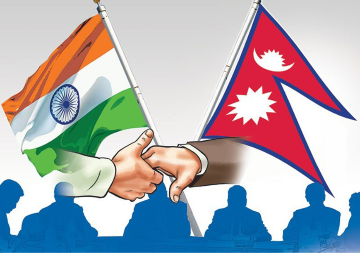
Even as reports have emerged that Indian and Chinese troops have begun partial ‘disengagement’ from some areas where they have been locked in a standoff for the last few weeks, the debate on China in India has become curiouser and curiouser. India largely accepts that it is an “argumentative democracy”; its friends are aware, too, and indeed celebrate India’s vivacious political and intellectual culture as a firm foundation for its democratic values. To them it is what makes India a transparent and trusted partner. For India’s adversaries, meanwhile, it is exactly what makes India relatively easy to deal with. A country like China has nothing but contempt for the Indian model where arguments often impede governance. Beijing scoffs at the Indian model where the constant back-and-forth between the State and its opponents often leads to a stasis which even decisive leadership finds difficult to manage.
But for most Indians, there is comfort in being able to thrash out our problems through vibrant public debate and it is too important a virtue to be taken lightly. With the central role of social media in many people’s lives, this debate has taken another turn as new voices and new idioms are constantly remapping public discourse. Public policy, too, is being shaped by this ‘new normal’ where expertise has become seemingly irrelevant and anyone can offer their views as the ultimate truth. Complex issues of strategy, operations and tactics — everything can be easily dissected and consumed in the 280 characters of Twitter.
With the central role of social media in many people’s lives, this debate has taken another turn as new voices and new idioms are constantly remapping public discourse.
Over the past several weeks, India has endured a unique spectacle where our body of Sinologists, satellite imagery specialists and defence experts seems to have expanded manifold. And that too all rolled into one. We all seem to know why China has done what it has done on the LAC, how much land it has supposedly gobbled up, how much fortification it has done, and what the best way is for New Delhi to respond. Those who have never liked anything that the Modi government has ever done are lamenting the supposed pusillanimity of the present dispensation. And those who like the government are using the same data to argue the exact opposite.
Mature nations do not make decisions about matters of war and peace based on temporary sentiments expressed by the media or faux debates on the social media. They ascertain their strategic choices by bringing alignment between their ends, ways and means. China is not trying to push its troops into Indian territory because its netizens on Weibo are egging the Communist Party of China (CPC). The CPC and its leadership has its own set of calculations derived out of its own sense of internal vulnerabilities as well as external manoeuvrability. Rarely has China ever let go of an opportunity to enhance its geopolitical leverage at a time of crisis. This present moment in the global order presents Beijing with opportunities which it is willing to exploit. We may find it offensive but Chinese leaders clearly recognise that they have to strike the iron while it is hot. It is for others to take care of their own responses.
The CPC and its leadership has its own set of calculations derived out of its own sense of internal vulnerabilities as well as external manoeuvrability. Rarely has China ever let go of an opportunity to enhance its geopolitical leverage at a time of crisis.
India’s response to Chinese expansionism too will be determined by its own understanding of its capacities and limitations. It is quite extraordinary to see that those who are most vociferous in their criticism of New Delhi’s handling of the present crisis are mostly also those who are critical of India developing robust ties with the US. That China is the stronger party in the Sino-Indian dyad is a given. Its economic power has allowed it to strengthen the military muscle that it uses to test other nations. It was happening before the present crisis and it will not cease even after, so long as the power asymmetry between India and China remains what it is. Even as India builds its internal sinews, in the short to medium term it needs strong partnerships with like-minded countries. But even that is supposed to be too radical an idea for many in the Indian strategic community. The idea of non-alignment still gets our intelligentsia’s hearts aflutter like nothing else.
In the last few years, India has not done badly when it comes to rejigging ties with China. While trying to maintain a semblance of normalcy with Beijing, New Delhi has actively courted other regional powers. India has built infrastructure on the borders more purposefully than ever before, it has adopted a proactive Indo-Pacific policy, and it has charted an ambitious course in defence diplomacy. India’s attempt to consolidate its peripheries with the revocation of Article 370 last year could have been the trigger for the present crisis in Ladakh. This is one of the rare occasions when the Chinese are reacting to India’s attempts at challenging the status quo.
In the last few years, India has not done badly when it comes to rejigging ties with China. While trying to maintain a semblance of normalcy with Beijing, New Delhi has actively courted other regional powers.
However, for some social media warriors, it is a pittance while for others, it is too dangerous because it challenges China. For some, Modi has continued to appease China while for others New Delhi seemed to have gone too far in antagonising China. And so, when it comes to this present border crisis, some want India to go to war while for others, subservience to China is the only option.
Effective public policy needs sound public debates. If New Delhi is to have a serious China strategy, it must be predicated upon how best India can align its ends, ways and means. For that, India needs serious Sinologists and satellite imagery specialists as well as a strong base of civilian expertise on defence matters who can make a dent in policy discourse with their sober analysis; not parachute commentators who give us solutions to the Covid-19 pandemic in the morning, resolve state of the economy in the afternoon, and tackle environmental degradation at night. Expertise is key, and sensationalism will never be the answer. India cannot become a major global player by fighting social media wars. For real and effective policy, India has to build its intellectual capital so that if need be it can fight real battles with the knowledge and wisdom that such an enterprise requires. There is no short cut to becoming a serious strategic actor.
The views expressed above belong to the author(s). ORF research and analyses now available on Telegram! Click here to access our curated content — blogs, longforms and interviews.




 PREV
PREV


